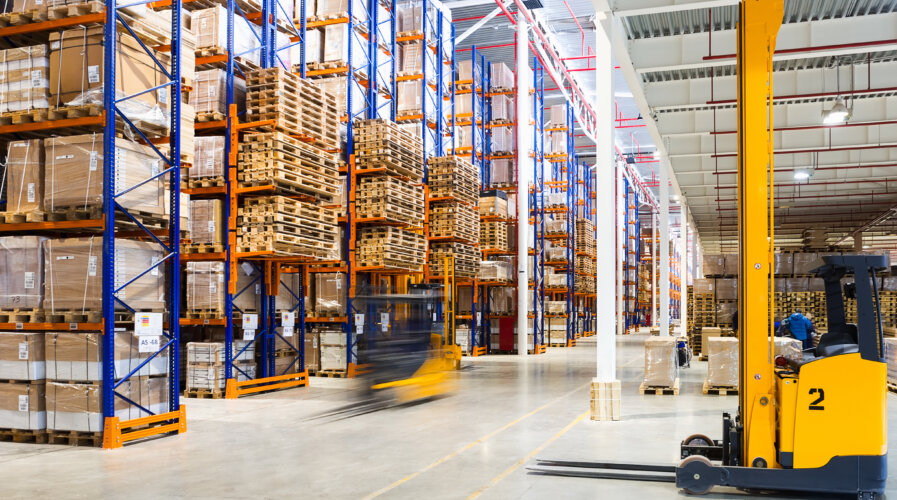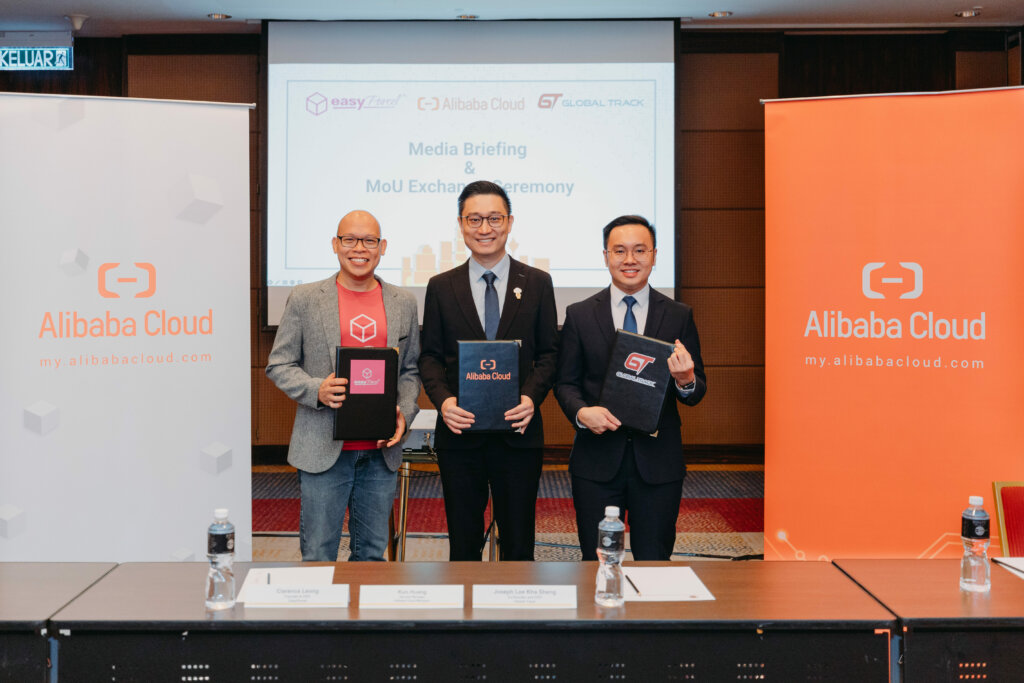How Alibaba and Global Track are revolutionizing the logistics industry in Malaysia

- Tech Wire Asia got the opportunity to speak with executives from Alibaba Cloud and Global Track, discussing how the collaboration can fill the logistics gap in Malaysia and Southeast Asia.
Alibaba Cloud, the digital backbone of Alibaba Group, has always had a strong presence in Malaysia. The cloud giant has tied itself to the digital future of Malaysia with the purpose not only of offering cutting-edge cloud computing technologies and extending the technological capabilities of various industry verticals.
Among all significant industries in Malaysia, the logistics industry plays an essential role in the country’s economy. The drive has evolved in recent years, underpinned by solid growth enablers such as better logistics infrastructure, increasing freight volumes, and structural growth in e-commerce.
Correspondingly, there has been a wave in mergers and acquisitions (M&A) and MoU activities within the logistics sector recently. Alibaba Cloud, which recently made its artificial intelligence-driven (AI-driven) logistics solution, EasyDispatch, available in Malaysia, had also signed an MoU with a local smart logistic system service provider.
The MoU, signed last month, would mean that Global Track would start deploying Alibaba’s smart logistics solution in Malaysia. For Alibaba Cloud, the move aims to drive business innovation and elevate the performance of the local logistics industry with its EasyDispatch.
In conjunction with the collaboration, Tech Wire Asia caught up with executives from Alibaba Cloud and Global Track. Kun Huang, General Manager of Alibaba Cloud Intelligence in Malaysia, and Joseph Lee Kha Sheng, co-founder, and CEO of Global Track, discussed how the collaboration could fill the logistics gap in Malaysia and Southeast Asia.
What is Alibaba Cloud’s view on Malaysia’s logistics industry?

Kun Huang, General Manager of Malaysia, Alibaba Cloud Intelligence
Kun Huang: The GDP contribution from the logistics industry in Malaysia is expected to increase to 6.5% by 2030, and the total workforce of logisticians is forecasted to hit one million in that same year. An extensive logistics network has become imperative, coupled with increased investments and growth in e-Commerce expected in Malaysia and across the region.
However, we have also seen some growing challenges facing the industry players, which have become key bottlenecks for sustainable development in the long run. One of the biggest challenges facing logistics industry players is the low adoption of advanced technology which goes hand in hand with limited expertise and high upgrading costs.
Other key factors include:
- A need for a more skilled workforce.
- The complexity of delivery routes.
- Various delivery models cater to different business needs.
What are the challenges faced by Global Track in daily business operations?
Joseph Lee: One of the primary challenges Global Track encounters in its day-to-day business operations is educating clients on adopting digital solutions.
Most logistics clients in Malaysia continue to rely on traditional methods for managing their day-to-day operations, sometimes resulting in a reluctance to embrace new techniques and solutions to improve work efficiency.
This presents a significant hurdle for our business as we strive to provide innovative and effective logistical services in an increasingly digital world.
What is Alibaba Cloud’s AI-driven EasyDispatch? How does it benefit Global Track and the end users?
Kun Huang: EasyDispatch is an intelligent logistics solution utilizing Alibaba Cloud’s latest cloud-based technology and AI algorithm. It is designed to improve supply chain management while reducing logistics costs and is an efficient real-time service dispatch solution incorporating Al-powered, centralized features and Vehicle Route Planning (VRP).
With the algorithm trained to achieve optimal results within predefined business restrictions, the smart logistics solution uses the latest reinforcement learning AI and machine learning technology to improve field service dispatch capabilities and efficiency by providing high-accuracy address processing capability and real-time dispatch service.
With Global Track incorporating Alibaba Cloud’s AI-based logistics solution, we have received some feedback that it has helped their clients reduce their processing time by up to 40% and workforce reduction by up to 30% on route planning and dispatch management.
As a result, their productivity and efficiency have sharply increased as less workforce and effort is needed on manual processing work.
Joseph Lee: With the added benefit of time savings, our clients can now channel their efforts towards other critical business functions, such as sales and marketing, ultimately leading to business growth.
This has helped us differentiate ourselves from competitors and become a reliable client partner.

Clarence Leong, Founder & CEO of EasyParcel, Kun Huang, General Manager of Malaysia, Alibaba Cloud Intelligence, and Joseph Lee Kha Sheng, Co-founder and CEO of Global Track exchanged MOU documents – Source : techwireasia.com
What does Alibaba Cloud think is the reason behind the challenges faced by the logistics industry in adopting advanced technology?
Kun Huang: We must recognize that there is still some hindrance in the growth of its ecosystem as some companies are reluctant to adopt advanced technology.
One of the reasons behind it is the assumption that the implementation and maintenance cost of advanced technology that needs to be factored into their annual budgets will be massive. This is understandably true, as adopting smart logistics might require them to purchase additional software and hardware.
The industry players must find reliable logistics solutions on board, allowing the industry to navigate and formulate an efficient and effective logistical strategy for their business.
What are some of the plans for Global Track after the collaboration with Alibaba Cloud?

Joseph Lee Kha Sheng, Co-founder and CEO of Global Track
Joseph Lee: Our plans involve leveraging Alibaba’s expertise and technology to introduce innovative solutions such as smart warehousing systems and extensive data analysis.
Given Alibaba’s significant presence and success in the China logistics market, we are confident that this collaboration will help us handle logistics operations more effectively and productively locally.
Furthermore, we are excited to announce that Alibaba Cloud will be our primary solution provider for clients seeking digital cloud solutions. With Alibaba Cloud’s data center in Malaysia, we have a distinct advantage in promoting Alibaba Cloud services to our clients. We are confident that this collaboration will help us differentiate from our competitors and strengthen our USP.
How can tech-powered startups fill the logistics gap in Malaysia and SEA?
Joseph Lee: The emergence of AI technology has brought about a significant shift in the logistics industry, focusing now on enhancing operational efficiency, productivity, and cost reduction.
Tech-powered startups can play a vital role in filling the logistics gap in Malaysia and SEA by leveraging cutting-edge solutions such as big data analysis and AI-powered tools. Using big data analysis, logistic owners can gain valuable insights into market trends and make data-driven decisions based on the collected information.
This helps streamline operations, optimize delivery routes, and improve customer service. Additionally, AI-powered tools can assist with inventory management and forecasting tasks, leading to more accurate demand planning and reduced waste.
Source : techwireasia.com



